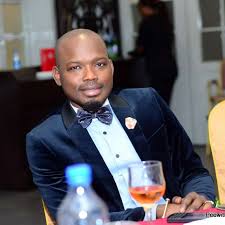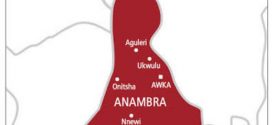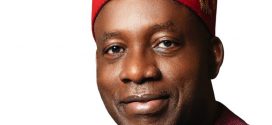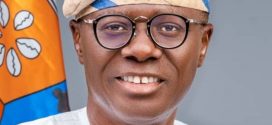I would think one known reservation a majority of the people might have against former Vice-President Atiku Abubakar as far as the 2019 election is concerned is his age. But let’s not get it twisted. Atiku not only looks good for his age, he is doing very well with it. After all, President Muhammadu Buhari is older and his health status is no longer news either. But the talk about corruption whenever Atiku’s name is mentioned is nothing but sheer balderdash. Indeed crap, lest you prove it.
Much as Buhari’s handlers had tried to keep mum about his actual illness, even though at our collective cost, it doesn’t change the fact that he has some health challenges, notwithstanding that he presently enjoys an uncommon Grace. To the shock of all and the glory of the almighty, he has improved significantly since he’s been going back and forth for his medical vacation abroad, leaving Nigeria’s medical system to rot away.
Give or take, Buhari and Atiku belong to the same age bracket and whether or not anyone likes it, they might be naturally slowed down by their ages respectively. It is not enough that they look good and still walk smart, age is a critical factor in the entirety of their being.
Besides, we could not have put in so much for the #nottooyoungtorun campaigns and at this stage just turn around and start backing the aged without as much giving a younger candidate the chance to make an impact or change the narrative at the very least.
But as a student of politics and power, I am not also oblivious of the fact that there could be many factors standing against the #nottooyoungtorun idea to germnate now than those that seem to support it. It is not clear if the imaginary owners of Nigeria are even disposed to it either. Therefore, just as it was in 2015, I’d predicted the possibility that the political space might be muscled in 2019 and the options reduced significantly. And lo, that is what has happened.
Speaking stricto sensu, what this means is that our very ‘realistic options’ in the next presidential poll is between Buhari’s APC and Atiku’s PDP, both of whom just won the presidential nominations of their parties.
I am not by this submission dismissing the chances of many other younger candidates like Omoyele Sowore (AAC), Edozie Madu (ADP), Peter Nwangwu (WPNP), Ahmed Buhari (SNP), Tope Fasua (ANRP), Ade Bryon (KOWA), Abubakar (NRM), Gbenga Olawepo (ANN), Eunice Atuejide (NIP), Donald Duke (SDP), Kingsley Moghalu (YPP), Ali Soyode (Yes Party), Davidson Akhimien (GDPN), Moses Shipi (ABP), Yahaya Ndu (ARP), Sunday Chukwu-Eguzolugo (JMPP), Hamisu Santuraki (MPN) and Fidelis Akhahomen (YDP), amongst others.
What I am saying is, if you are a realist like me and given the very peculiar dynamics of our body polity, no other candidate realistically stands a chance outside of these two men in 2019. Even though ours is said to be a multi-party democracy; it is only in theory. Practically, we run a two-party system, at least, it is what we have had to deal with.
My hypothesis is that now that the two gladiators, either by accident or design, are the options open to us in 2019, I, for one, have a good idea about the capacity of both men from a close range, having had the privilege of a one-on-one encounter with the both of them, albeit at different times and in the lead up to the 2015 elections.
Some days to the 2014 National Convention of the APC in Lagos (an exercise that eventually produced Buhari as the APC standard bearer), THISDAY had organised special sessions with each of the two leading candidates (Buhari and Atiku) for a comprehensive and incisive interview. It was a move designed to bounce off ideas from the both of them on the then state of Nigeria, her future and to also have firsthand, what plans they had.
Honestly, there was no debating the difference between Buhari and Atiku, speaking the gospel truth. Whilst Atiku was clear about what the challenges were, the likely solutions and how to apply them, Buhari though boasted a huge sense of humour, he “mumbled” through a majority of his answers. In fact, the key issues!
Even in the area of security and the fight against corruption that were generally considered his strength since the economy was arguably not his thing, Buhari didn’t seem to have clear cut solutions or modus operandi. He relied chiefly on the perception around him or what his people would gladly call the “body language” wonder. Nothing more!
But placed on a table before Atiku was a compendium, where he had clearly articulated some of the issues confronting the country and the step-by-step approach off-the-top of his head without recourse to the book. Atiku convincingly sold his vision and clearly so.
After the session, no one amongst us was left in doubt as to who was the best man for the job. Unfortunately, the equation seemed settled ab initio. Whether or not he knew anything about the job he was seeking, Buhari was the man “they all wanted” and thus, merit and capacity were heavily relegated at our collective expense.
Today, three and a half years after, it is evident the incumbent had been overrated. For a man, who had managed no known business of his since leaving power in the mid 80s, to say the least, developed and prepared himself for this onerous task, Buhari has proven that sentiment in the choice of leadership is a disaster-in-waiting any day, any time.
Whilst it is arguable that not having any known businesses of his is not a requisite for delivering good leadership, after all, the examples of Barack Obama and Donald Trump suffice here, there was no evidence yet that he would put a lie to this assumption. And armed with the evidence of that encounter, I know better.
To that extent, his victory in 2015 can easily pass as an error of choice, which is pardonable if seen in that context. But to repeat such an error in 2019 means the stupid one here are the electorate, who do not have a clear cut idea what vision they seek for Nigeria.
For the record, I’m not into Atiku, but I also know for a fact that the unsavoury things being said at all times about him are all made up to consistently reduce his chances at every presidential bout. This is because on the one hand, some people dread his presidency and some, on the other hand, think they are the architect of other people’s destiny and so, could impose their lot on them whether or not it is inimical to the collective interest.
However, for a man who has successfully managed many businesses, both locally and internationally, his good sides clearly outweigh his bad tendencies even as I must admit he is human and susceptible to human errors. Yet, he commands more leadership attributes, not just as an avid reader of books, but more importantly for having proven to be a good manager of human and material resources with staggering contacts across the country and the world at large.
Someone close to Buhari enough to know once said to me that the retired general has no known library anywhere in the world. That is not difficult to know anyways. But you want to ask: what sort of a leader does not have a library? So, what kinds of books does he read? What human interest literatures excite him, when it comes to the choice of books? Who are his role models? Which renowned world leaders catch his fancy?
Poignantly, these are things leadership does not gloss over. It is assumed mandatory. Truly, whilst the office of the president is very important, like @Debola Williams said sometime ago at an Obama event in the US, the office of the citizen is indeed more important. But something even more fundamental is missing here and it is the fact that a synergy – a sort of marriage between the two offices are germane to the ideal society we all seek. It is sacrosanct. Neither of both can do away with each other.
What this presupposes is the principle of roles and responsibility expected of the leader and the led. If each understands his roles and responsibilities and they come together with shared interests, the society is ultimately the biggest gainer. And where it fails, reverse is the case.
This is why the citizens must be sure and clear with what they want when the election into the office of the president comes up next year. Like it or not, they must work together and so, the choice of who knows the job with requisite empathy, knowledge of the issues and capacity to deliver must be settled from the word go. It is not enough to reverberate and wallow in sickly and sulky emotions or insensate populism. You are expected to step in the fray, guided by substance and empiricism.
Pause for a moment and ponder what Nigeria’s key problem is? Let’s not waste time. It is EDUCATION and on this box, Buhari has failed abysmally. In his 2016, 2017 and 2018 budgets, he has consistently allocated a paltry 7 per cent to education even when UNESCO canvassed 26 per cent, not to talk of his choice minister for that critical sector.
What kind of a leader thinks development and yet thinks so lowly of education? You can develop the best of infrastructure around the world for all you care, but the illiterate generation you are raising would destroy these efforts in no time. It is not esoteric.
It was not for anything that the late sage, Chief Obafemi Awolowo said a leader should only think of other areas of development after he must have finished off with education and health. But guess what? This is where Nigeria annoyingly lags behind and yet, you talk to me about leadership with zero record performance, for real?
Thank God for the likes of Awolowo, at least, he is both an indication and a consolation that positive development thinking is not a DNA problem for an average Nigerian or the black race. It is just that these new age leaders neither understand nor are able to sell it.
I must say there is no brooding over the choice made in 2015 and the resultant effects. Another opportunity is here in 2019 to redress that “innocent mistake”. It doesn’t have to be Atiku but since the choice is between him and the incumbent, there is no debating who is better. I haven’t shut out others still.
In essence, your vote is your choice and your choice is the future that you seek. Blame no one for that choice of yours anymore. Learn to see propaganda for what it is, because it is the work that EDUCATION is meant to do in your life – the capacity to discern. But they have refused to educate you.
People can be clothed in a robe that is not theirs on account of politics or sheer animosity, but education that is devoid of gullibility in the name of perception can help you see that they are being clad in strange clothes.
Perception is not everything for the critical minds; reality is. Be real and let substance, facts and figures shape your reasoning. The future appears promising, but the indications are not quite so. Yet, everything is about leadership. Make the right choice, wean yourself of sentiment and stand with a decision you can boast of.
Even if the #nottooyoungtorun dream did not fly in 2019, the youths can still prove their mettle with their population by deciding who gets there next, a decision that must be predicated on good thinking and untainted patriotism. That way, a subliminal message is passed on and a major political reform might have been instigated, consequently.
For emphasis, emotionalism and unproven populism are the twin weaknesses the Nigerian youth must overcome, if they truly desire to establish and affirm their place in the body polity. A dream Nigeria is feasible and doable; making a not-so-difficult choice is the evil standing between!
This, for me, is therefore not a battle between two Fulanis. It is not a fight between two Muslim brothers, neither is it a fight between two gerontocrats. On the contrary, it is about making a distinct option between capacity and the lack of it; between a strong leader and a weak one; between good and evil; between a pretender for the sake of power and a contender; between truth and lies, and of course this, which is the ultimate is choosing between progress and retrogression
 Hottestgistnaija.com
Hottestgistnaija.com





